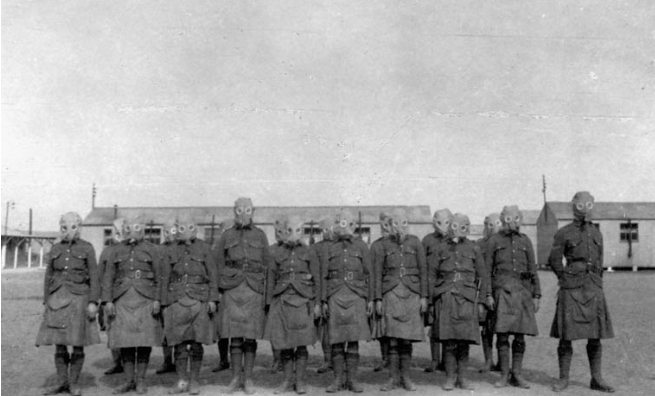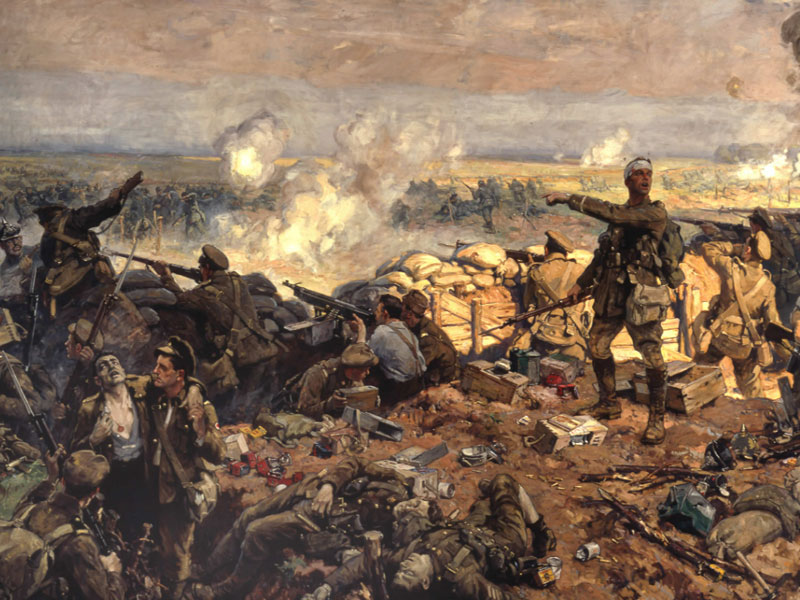As they went over the trenches and through the battlefield, they saw a pale green gas in the air that smelled like a mix of ‘pineapple and pepper’, causing severe cough, vomiting, and/or irritation in the eyes. These were the horrific scenes of the Second Battle of Ypres on April 22, 1915 – the first mass use of chemical gas by Germany in the First World War (WWI).
Several soldiers from New Brunswick served at Ypres. Historian Brent Wilson points to Private (Pte) Arnold E. Smith as one of the youngest volunteers to leave Fredericton from the first contingent sent to fight. Pte Smith was wounded in the battle after he was struck in the shoulder by shrapnel. In a letter published in the Daily Gleaner, Pte Smith states that he was “one of the lucky ones.”
The Second Battle of Ypres was a significant battle in Canadian Military history. The battle resulted in approximately 6,000 Canadian casualties and invoked both national pride and mourning for Canadians at home. The battle was also the inspiration for the iconic poem: In Flanders Field, by Lieutenant Colonel John McCrae.
As Canadians, we must always remember that our freedom has come at the price of tremendous sacrifices made by those in uniform throughout our country’s history. They walked into the fog of war and did not waver in their resolve. Lest we forget their service and sacrifice.
2Lt Raghav Sharma


